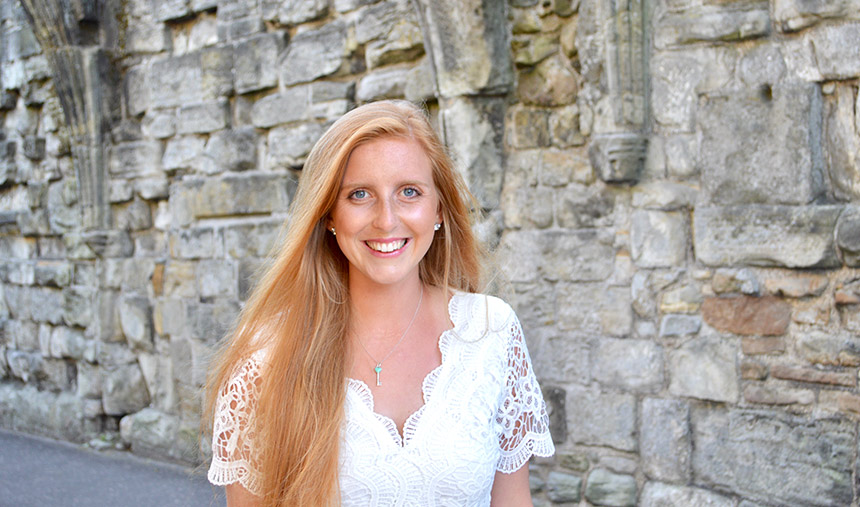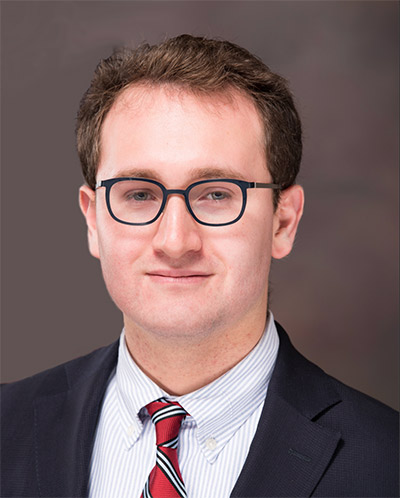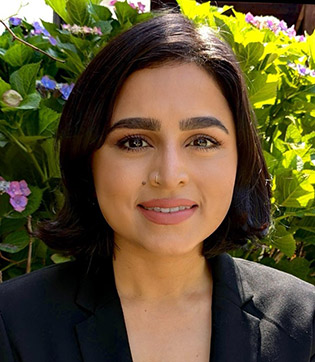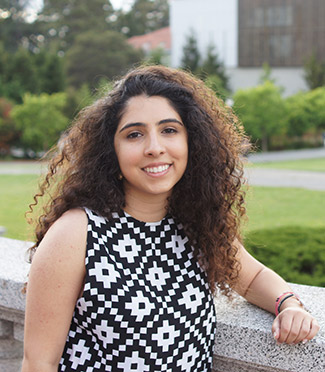
By Andrew Cohen
On a good day, you meet expectations. On a great day, you exceed them. On a spectacular day, you turn them into a faint speck in your rear-view mirror.
For Berkeley Law’s team at the recent Roger J. Traynor California Appellate Advocacy Moot Court Competition — 2Ls Julia Bennett, Elle Mahdavi, and Fatima Ladha — dazzling final results validated diligent preparation.
First place for best oral argument in the final round (which you can see here)? Check. The Excellence in Appellate Advocacy Award for highest combined oral argument scores in the first two rounds? Check. The Gisnet Mandell Award for best brief? Check.
And if that wasn’t enough, Bennett received the Geoffrey Hall Wright Award for best oralist in the tournament and Mahdavi received an Individual Merit Award for her oral argument.

“It was an incredibly positive and rewarding experience,” Bennett says. “I’m so grateful that I got to be on a team with Fatima and Elle; working with them made the process so much fun. I attribute our success to how well we worked as a team and the detailed and thoughtful feedback we got from our coaches.”
Alumna Brittney Harris ’13 and Jonathan Chacon — co-student director of the external moot court program along with fellow 3Ls Benjamin Malings, Elizabeth Heckmann, and NoahLani Litwinsella — helped coach the team. They offered practical tips on strategic tactics and helped steer organizational coordination, guiding team members through the hypothetical fact pattern.
“I know we’re all so appreciative for their continued support throughout the process,” Bennett says. “While it was exciting to win best individual advocate, the most gratifying part was Berkeley’s overall win. I think it’s the best reflection of how much we all put into the competition over the semester, and certainly what I’m most proud of.”
The fact pattern involved a police officer who was dispatched to a commercial parking lot and discovered “Peter Prescott” sitting reclined in a vehicle. The officer detained Prescott and found that he possessed drugs and a firearm. His subsequent suppression motion was denied and he pled guilty, preserving his right to appeal the legality of his detention.
The issues addressed on appeal: Was Prescott legally detained? If not, does the discovery of a parole or probation search condition remove the taint of an illegal detention under the attenuation doctrine? What constitutes purposeful and flagrant police misconduct under that doctrine?

Talent and tenacity
“Elle, Fatima, and Julia were such talented writers and oralists from the start that I think my most important role was simply to remind them to have confidence in their abilities and different styles of oral advocacy,” Chacon says. “They owe their success to their hard work, teamwork, good character, and brilliant legal minds. That allowed them to have thoughtful and respectful conversations about the case with judges while still vigorously advocating for their clients, which is at the heart of appellate advocacy.”
The team members all pitched in on the brief, divvying up sections based on the problem’s legal issues and their own specific interests. Because participants are asked to argue both sides of the case, the students also closely edited each others’ sections and offered feedback.
“Jonathan had helpful insight and advice for us as we were thinking through the various legal issues we should explore in our arguments,” Ladha says. “During the actual competition and especially during the final round, I felt really empowered because we had strong arguments and were really familiar with the relevant case law. I thought we all worked really well together as a team and I’m grateful for the experience.”

For Mahdavi, achieving such success in her first moot court event reinforced the lesson that preparation pays. Chacon advised the team to begin preparing a few months before the competition, which Mahdavi credits for making the process “a lot less stressful.”
“We each spent around five to eight hours a week working on the brief for about five weeks,” she says. “Each of us wrote a subsection within the argument, and we split the remaining sections … Because working with Fatima and Julia was so easy, I would have to say the most challenging part was preparing the table of authorities for the brief.”
This summer, Ladha will split time between two plaintiff firms (Zelle LLP in Oakland and Loevy & Loevy in Chicago), Mahdavi will work at Quinn Emanuel Urquhart & Sullivan in New York City, and Bennett will work at Holland & Knight in Washington, D.C. Graduating in May, Chacon will begin clerking this fall for federal judge Claude Hilton in the Eastern District of Virginia.
Despite having no prior moot court experience before the Traynor event, the training Bennett received and the supportive team environment prompted her to become one of the program’s competition leaders next school year.
“I am so excited for that,” she says. “I was inspired to run because Jonathan was such an amazing coach who made the process really fun and provided a true opportunity to learn and grow.”